When playing with young children, it's essential to avoid predictable or dishonest gameplay where adults might deliberately lose. Such scenarios lead to unfulfilling and inauthentic experiences. Instead, the unpredictability of card distribution in these games can sometimes favor the children and other times the adults. This leads to varied and exciting game outcomes, keeping the interest alive for both children and adults. This approach not only makes the game enjoyable but also imparts a sense of fairness and excitement to the young players.
Giving Advantages
Board games offer a cherished avenue for family bonding. Yet, striking a balance to make them enjoyable for players of varying ages and skill levels is crucial. By intelligently tweaking game rules, families can ensure a quality shared experience that benefits everyone.
I'll read this articleCard Games for Young Children: Hand Size and Card Management
A surprising yet essential aspect to consider when playing card games with preschoolers and even young school-aged children is the size of their hands. These young players have smaller hands compared to adults, which can impact their ability to manage cards effectively.
Avoid card games that require holding too many cards at once. Struggling to hold a large number of cards can lead to frustration and a lack of understanding of the game. Ideally, limiting the hand to 3-4-5 cards is sufficient. However, even with this reduced number, younger children might still need assistance.
One solution is the use of card holders. If you don't have a card holder or prefer not to purchase one, there's a clever trick: use a board game box - possibly the one you're playing with. Positioning the cards in the small gap between the box lid and the base can be an effective way to manage them. This simple method enables children to keep their cards organized and visible, ensuring they enjoy the game to the fullest.
In my experience, Djeco's range of card games stands out as an excellent choice for young players. Among their collection, games like Piou Piou, Mysterix, Piratatak, Familou, Diamoniak, and Batasaurus offer engaging, age-appropriate challenges. While Pipolo is also a part of this vibrant selection.
Each of these games offers a unique blend of fun, learning, and engagement, making them perfect choices for 4-year-olds.
Although many of these games are recommended for children aged 5 and above, I believe they can be suitably introduced to 4-year-olds.
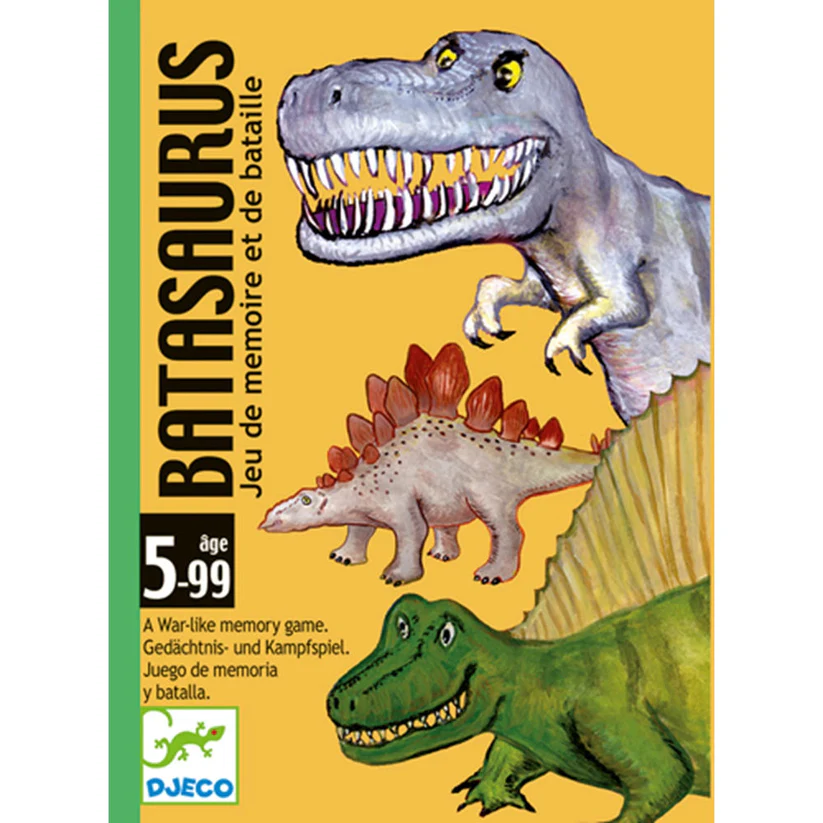
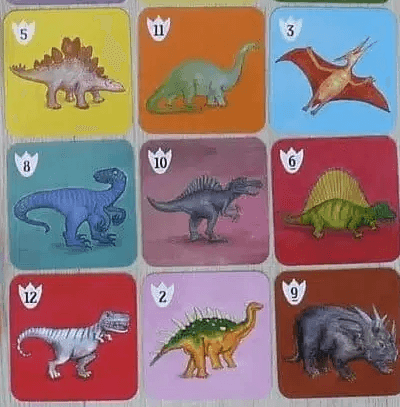
Batasaurus
Ein gedächtnisgetriebenes Dinosaurier-Duell, bei dem jede Zahl zählt und clevere Strategie die Schlacht gewinnt.
Tools
48 Dinosaurier-Kampfkarten (mit Zahlen von 1 bis 12, vier Sets mit 12 Karten in verschiedenen Farben).
Skills Developed
Gedächtnis, Zahlenvergleich und grundlegende Mathematik, strategisches Denken, Fokus und Aufmerksamkeit.
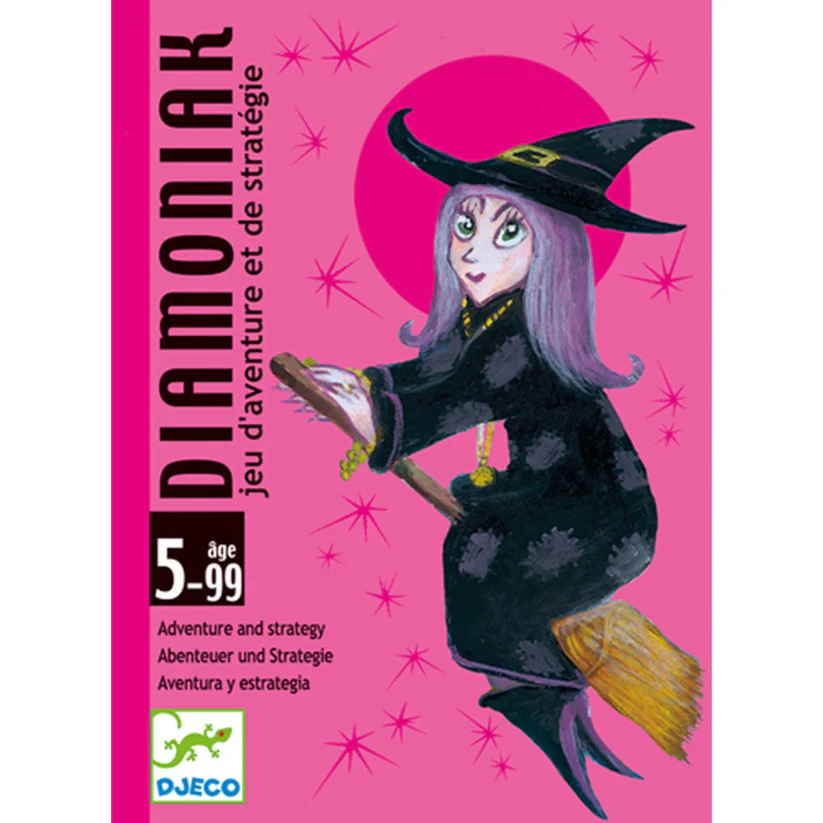
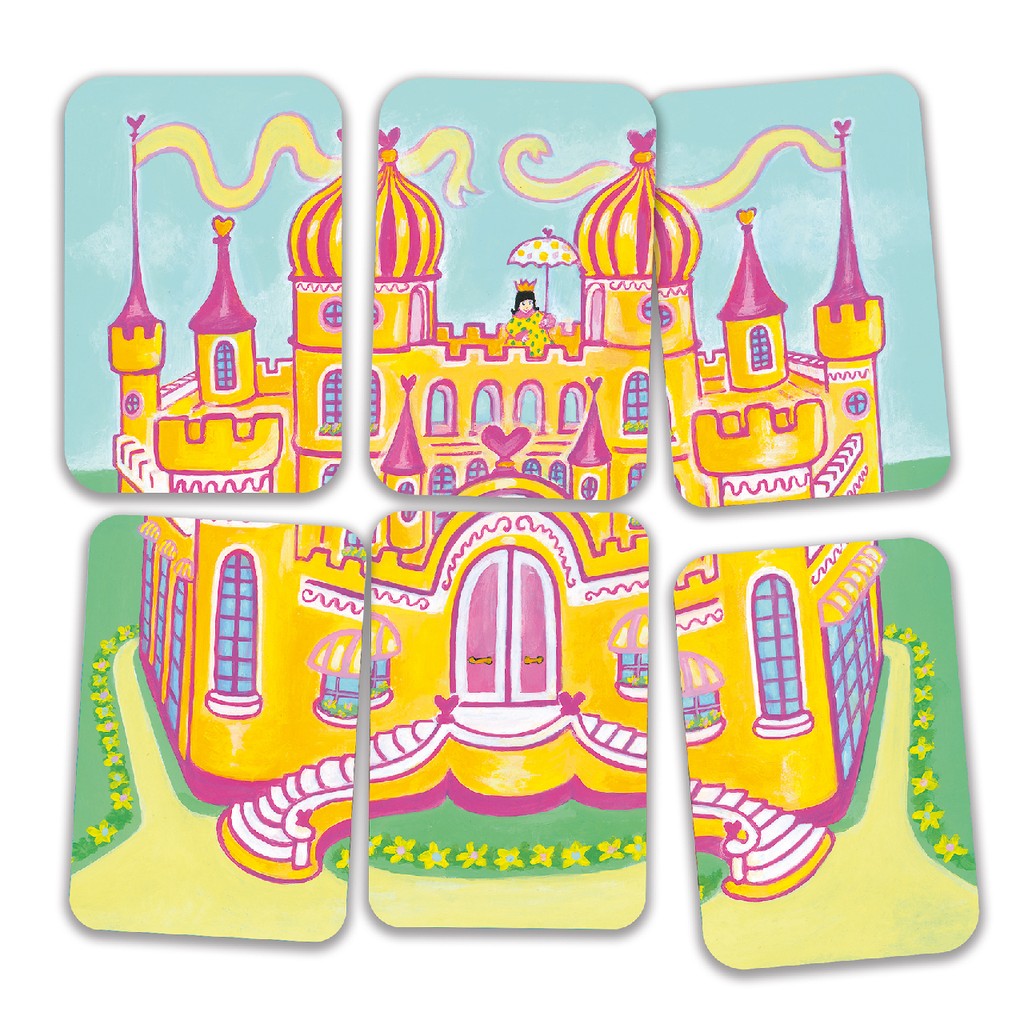
Diamoniak
Ein magisches Wettrennen, um dein Schloss zu bauen – aber hüte dich vor Hexen, wilden Zaubersprüchen und deinem eigenen Wagemut!
Tools
55 illustrierte Karten (Diamanten, Hexen, Zauber, Schlösser usw.)
Skills Developed
Risikobewertung und Entscheidungsfindung, Planung und Strategie, Farb- und Mustererkennung, Abwechslung und Geduld.


Familou
Gesprächiges, legendes, sammelndes Kooperationsspiel.
Tools
42 „Tierfamilien"-Karten + 6 „Wolf"-Karten.
Skills Developed
Kooperation, logisches Denken, Gedächtnis.
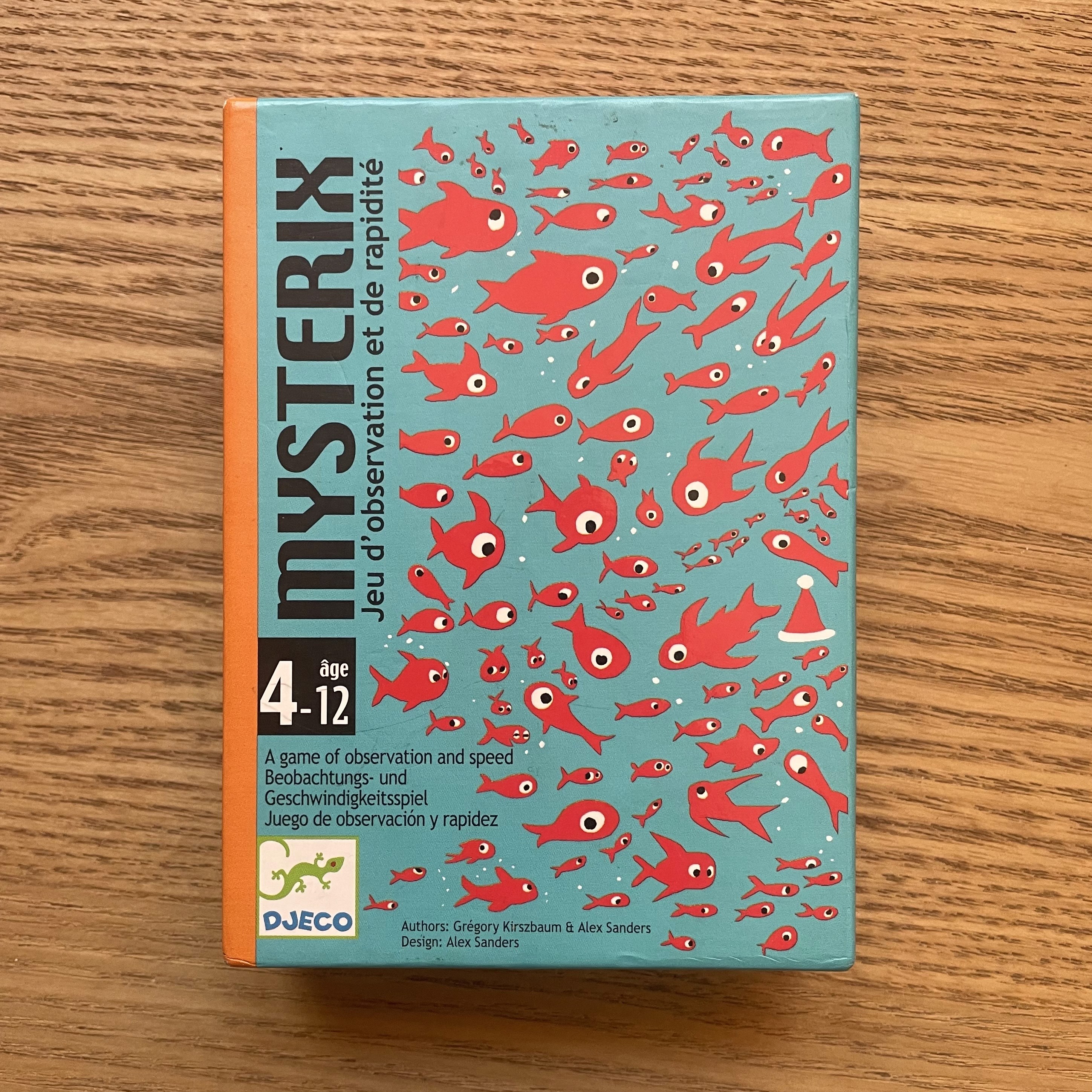

Mysterix
Du denkst, es ist einfach und leicht zu merken – aber dein Gedächtnis wird dir nur im Weg stehen!
Tools
54 Karten (9 Szenen – 6 Karten pro Szene).
Skills Developed
Visuelle Wahrnehmung, Konzentration, Schnelligkeit.
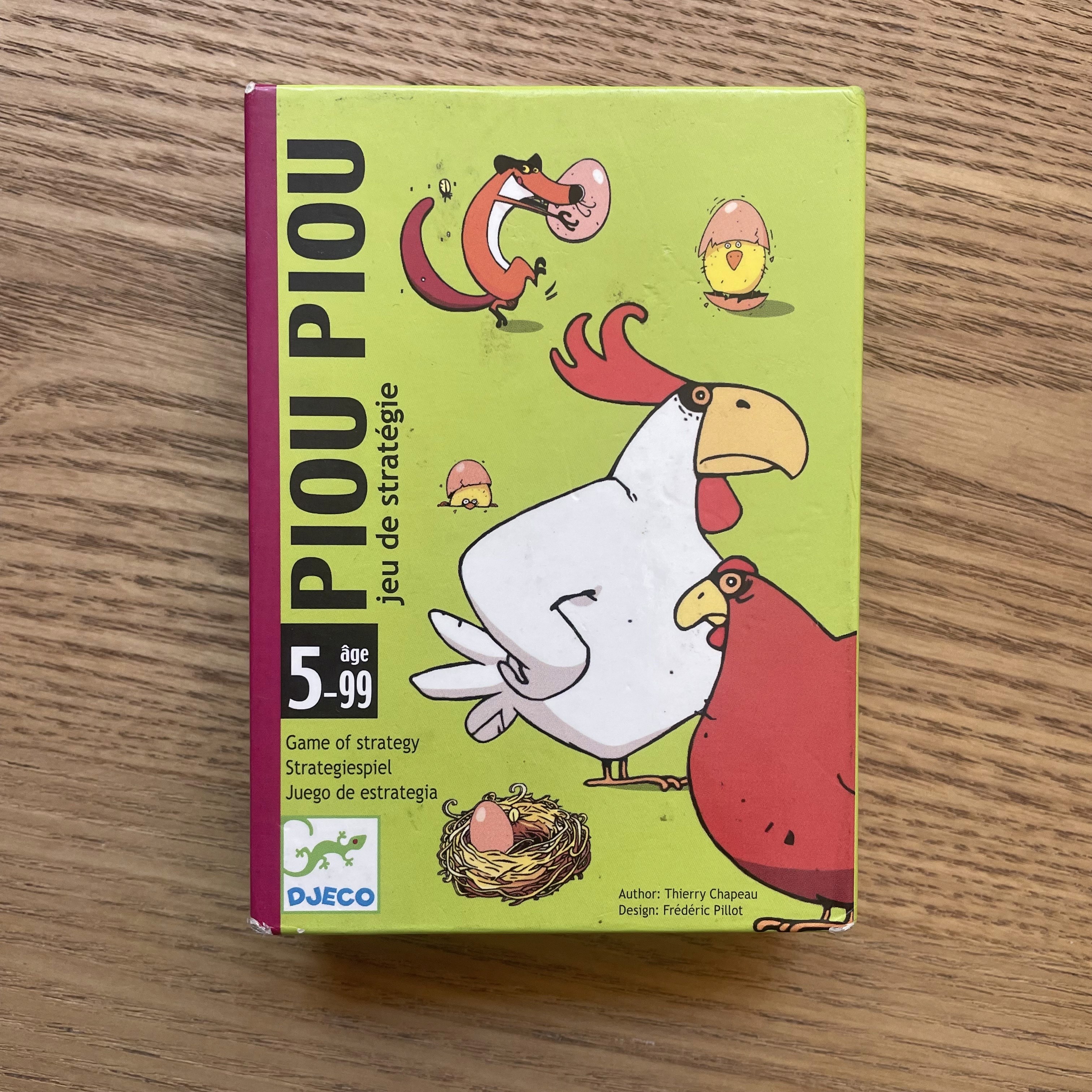
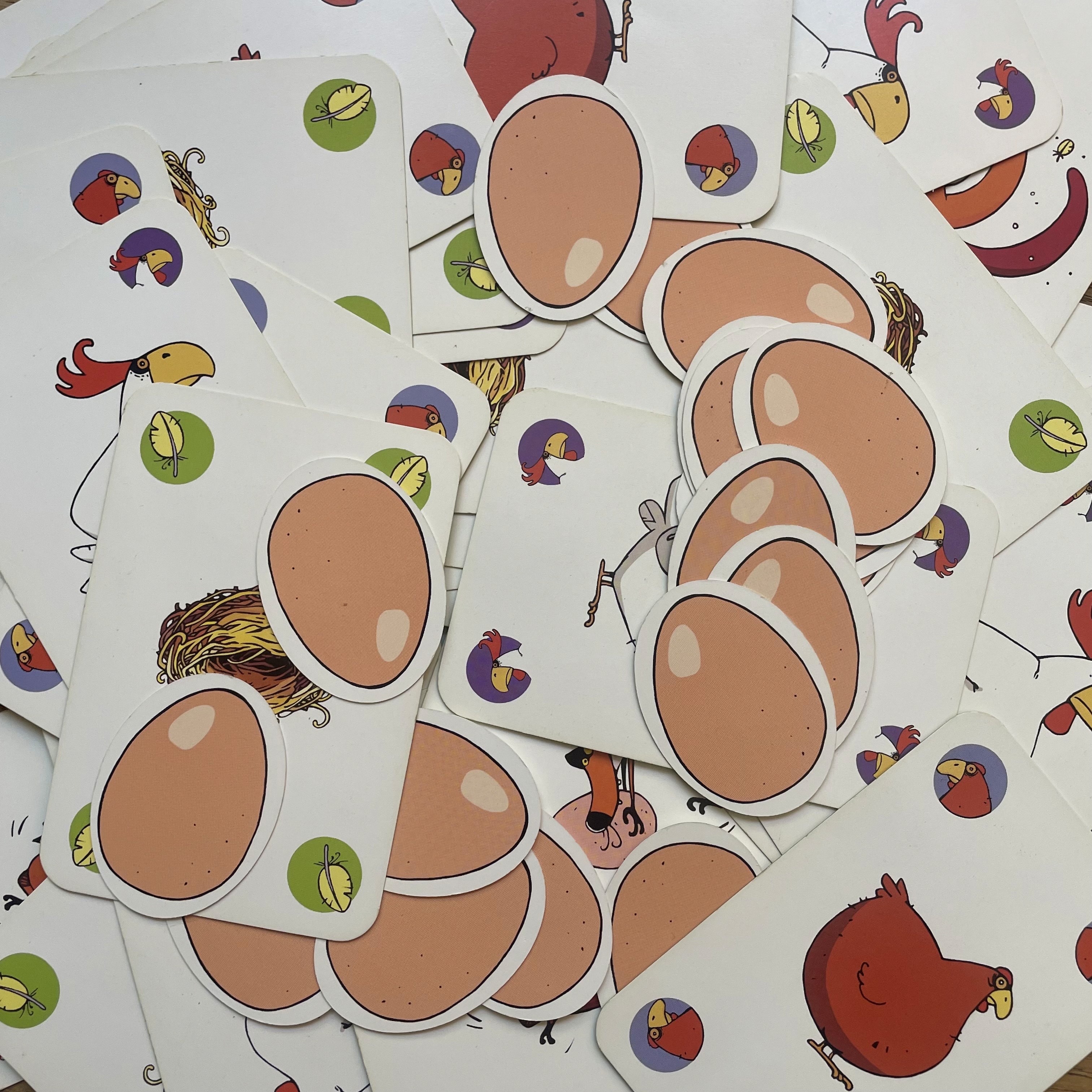
Piou Piou
Ein rasantes Sammelspiel voller spielerischer Ärgern-Momente.
Tools
47 Karten (6 Füchse, 15 Hähne, 15 Hennen, 11 Nester) und 18 Eier/Küken
Skills Developed
Strategisches Denken, Sammeln von Sets, grundlegende Logik.
Help Your Child Fall in Love with Reading
Print and play board games, downloadable coloring pages, educational materials
See Product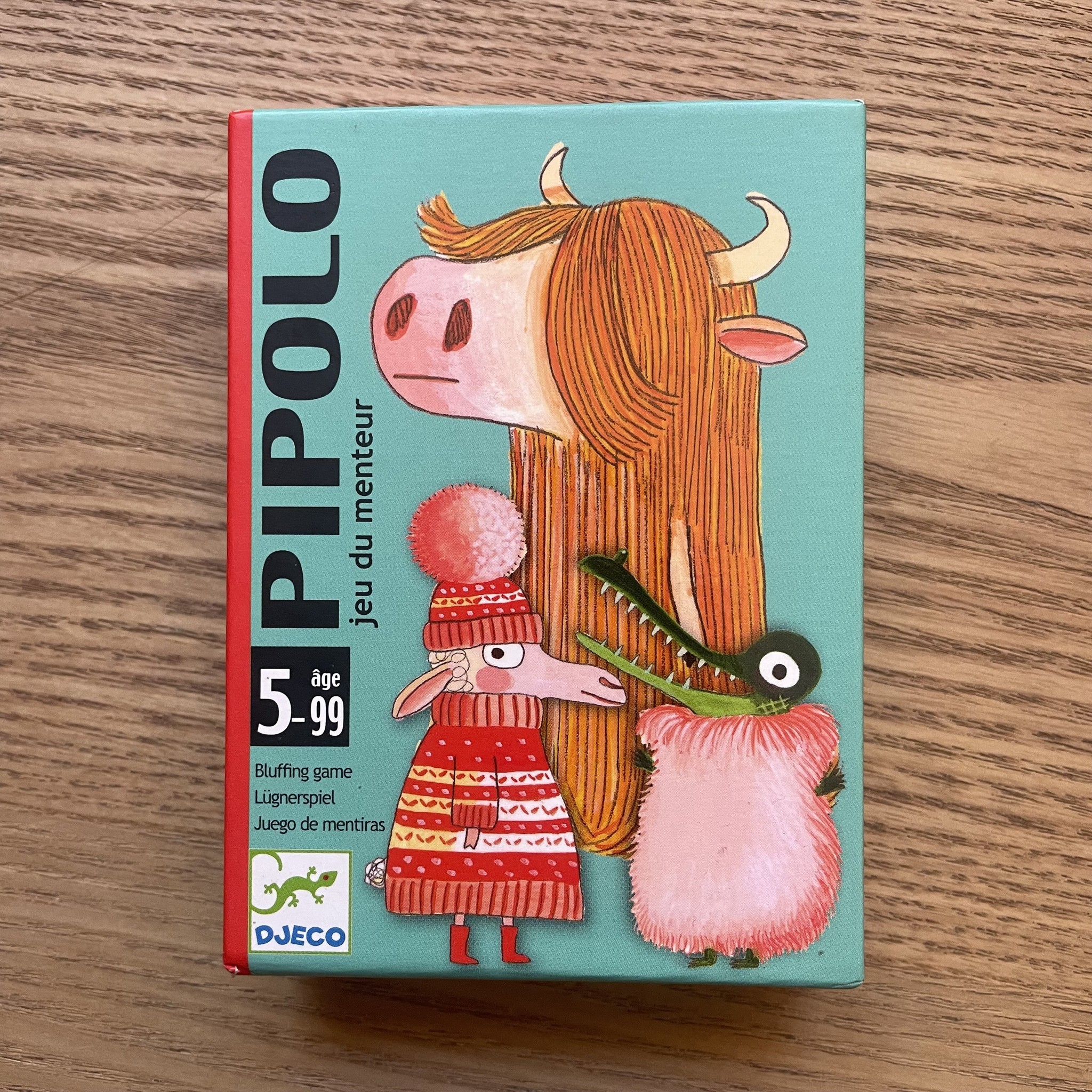
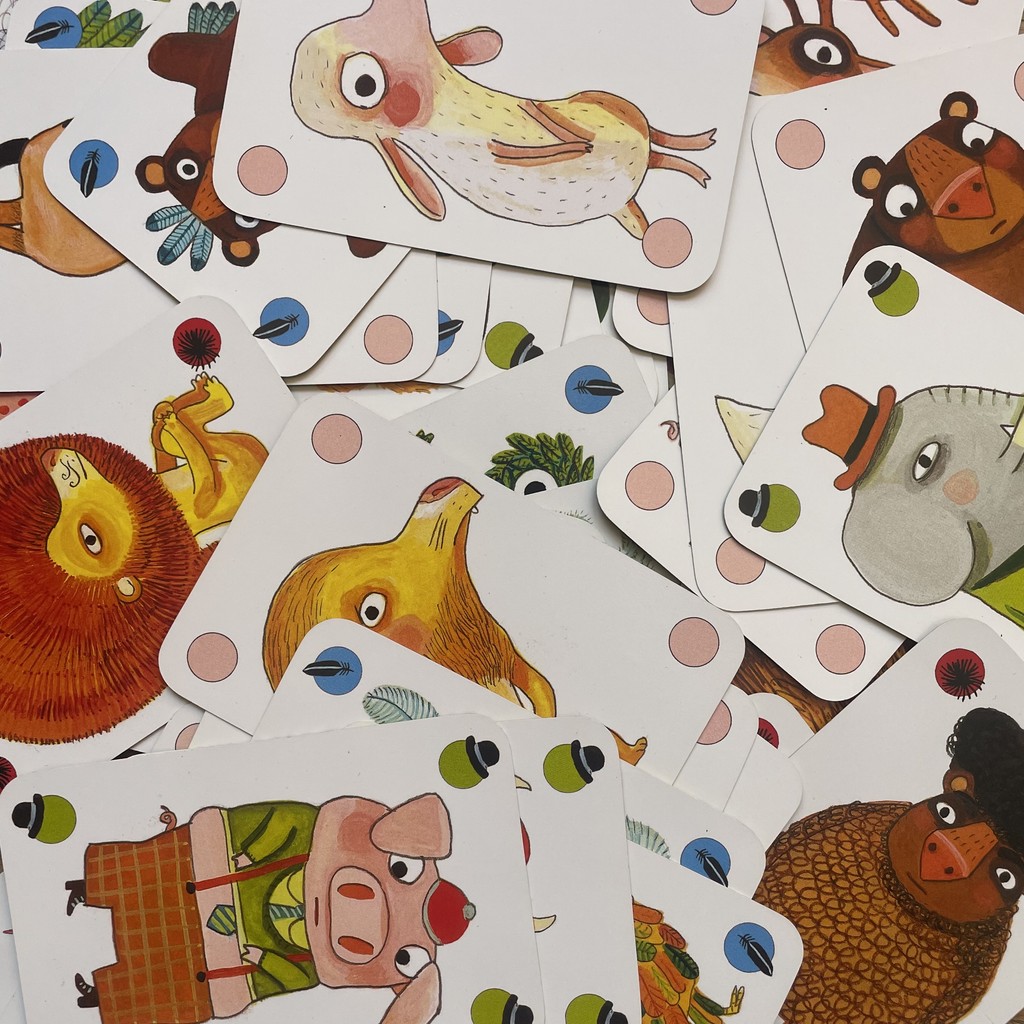
Pipolo
Ein echtes Kuriosum – dabei musst du mit Pokerface bluffen.
Tools
40 Tierkarten (10 haarige, 10 nackte, 10 gefiederte, 10 bekleidete), 4 Jokerkarten.
Skills Developed
Bluffen, Regelverständnis, visuelle Unterscheidung.
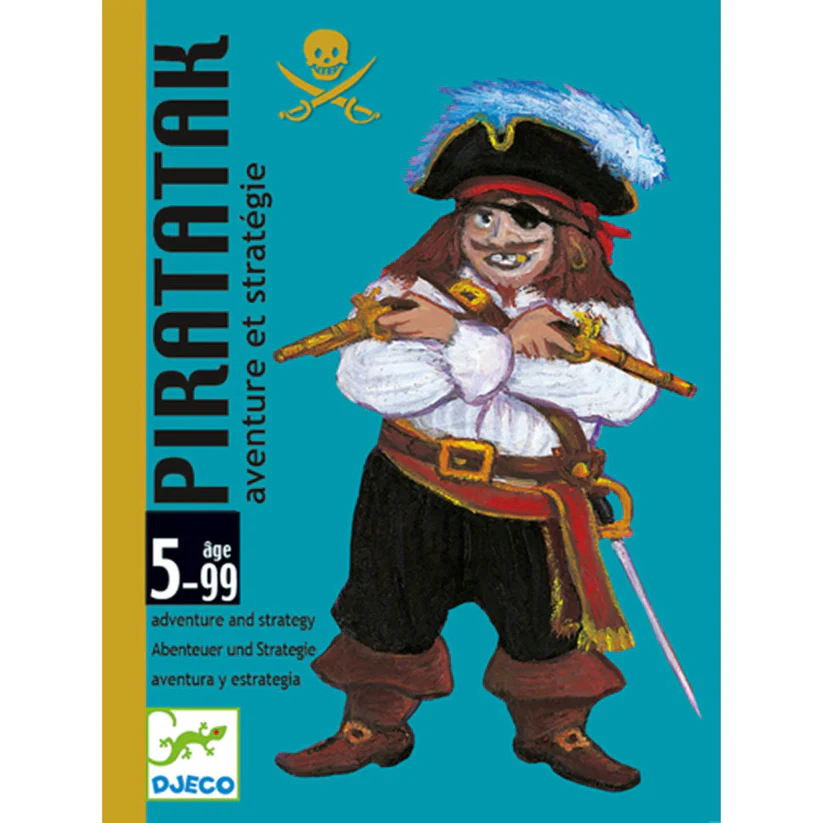
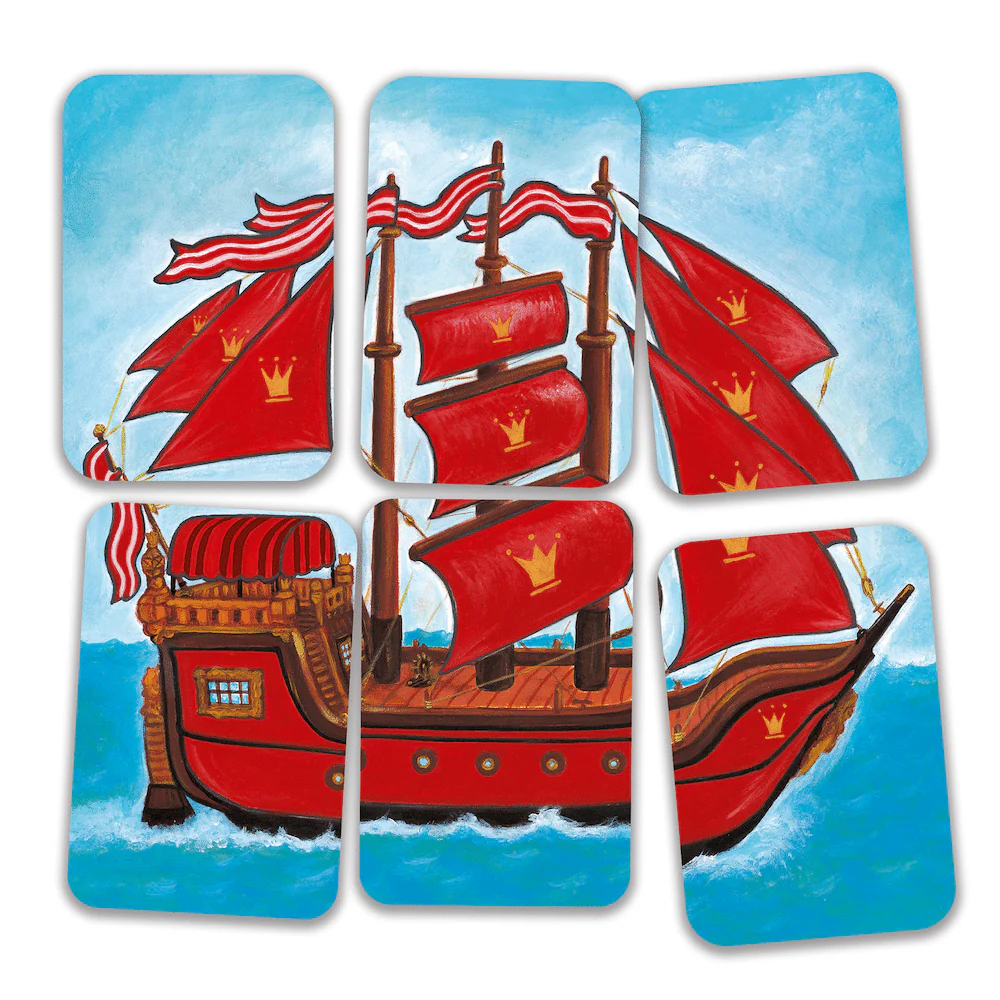
Piratatak
Stich in See zu einem Abenteuer, bei dem das Glück den Mutigen gehört – aber Vorsicht vor feindlichen Angriffen!
Tools
55 illustrierte Karten (Piraten, Schiffe, Münzen, Kanonen usw.)
Skills Developed
Strategische Entscheidungsfindung, grundlegendes Ressourcenmanagement, Risikobereitschaft und Wahrscheinlichkeitsgefühl, Fokus und Planung.
Djeco Card Games
Djeco is one of Máté's favorite publishers! The games I'll be talking about: Familou, Mysterix, Piou Piou, Pipolo.
I'll read the reviewRemember: The Focus Is on the Kid, Not the Card
While our enthusiasm for card games is a key driver, it's equally important to consider the nature of the children we're playing with. Each child has unique preferences, which play a pivotal role in the game's success and their enjoyment.
Card games vary greatly, with options like cooperative and competitive (confrontational) styles available. Cooperative games are excellent for children who thrive on teamwork and collective challenges, fostering a sense of unity and shared achievement. Conversely, competitive card games, which focus on player interaction and strategic thinking, might appeal more to children who relish a spirited challenge.
Understanding the children's personalities and playing styles is crucial. This insight helps in choosing card games that are not only fun but also resonate with the children's interests and social dynamics, ensuring a rewarding and enjoyable gaming experience for all participants.
Your thoughts?
We'd love to hear your new ideas, and thoughts on our above list. Join the conversation!
No spam, ever. Unsubscribe anytime.
Spread the Fun of Learning!
Love our content? Show your support by sharing our page with your friends and help us inspire more families and educators with the joy of learning through play! Your shares truly make a difference. Thank you for being a wonderful part of our community!
